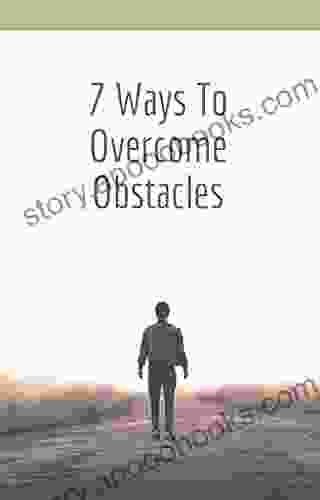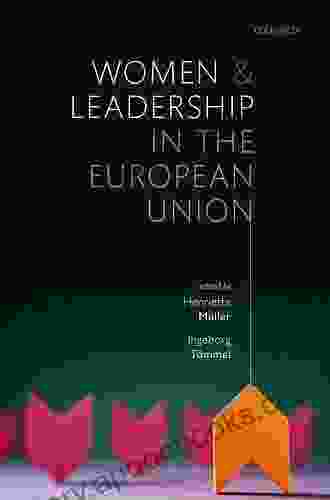McCarthyism and the Red Scare: A Haunting Chapter in American History

The post-World War II era in the United States was marked by a profound societal shift as the nation grappled with the looming threat of communism. This fear, fueled by the ideological battle of the Cold War, manifested itself in the form of McCarthyism and the Red Scare, a period of intense political persecution and social hysteria.
5 out of 5
| Language | : | English |
| File size | : | 2212 KB |
| Text-to-Speech | : | Enabled |
| Screen Reader | : | Supported |
| Word Wise | : | Enabled |
| Print length | : | 210 pages |
The Rise of McCarthyism
The term "McCarthyism" is synonymous with Republican Senator Joseph McCarthy, who emerged as the fierce leader of the anti-communist crusade. McCarthy's reckless accusations and unsubstantiated claims of communist infiltration within the government and other American institutions gripped the nation in a frenzy of fear.
With skillful political maneuvering and a relentless campaign of public attacks, McCarthy gained significant support, capitalizing on the widespread fear of communism and the desire to expose and eliminate any perceived Soviet influence. His tactics, characterized by exaggerated claims and unsubstantiated accusations, left many innocent individuals vulnerable to public scrutiny and professional ruin.
The Red Scare Spreads
The Red Scare extended beyond McCarthy's Senate hearings, spreading its tentacles into various aspects of American society. The entertainment industry, particularly Hollywood, became a primary target of suspicion. The House Committee on Un-American Activities (HUAC) conducted investigations and hearings, seeking to uncover any alleged communist sympathies or affiliations within the film world.
Under pressure from the public and political leaders, film studios implemented a blacklist, barring suspected communists from working in the industry. Screenwriters, actors, directors, and other personnel faced interrogation, intimidation, and the loss of their livelihoods, their careers destroyed by mere accusations and unfounded allegations.
Academic Suppression
The Red Scare also cast a chilling shadow over academic freedom. Educational institutions became targets of scrutiny, with investigations and loyalty oaths designed to weed out suspected communists among faculty and students. Teachers and professors risked losing their positions if they refused to conform or expressed views that deviated from the prevailing anti-communist sentiments.
The atmosphere of fear and suspicion stifled intellectual discourse and disrupted the pursuit of knowledge. Students and educators alike faced pressure to self-censor, fearing the consequences of expressing alternative viewpoints or questioning the established narrative.
Erosion of Civil Liberties
The pervasive fear and paranoia of McCarthyism led to a significant erosion of civil liberties. Basic rights such as freedom of speech and association were compromised as individuals feared being labeled as un-American or sympathetic to communist ideology.
The government's use of surveillance, secret informants, and loyalty oaths created an atmosphere of mistrust and suspicion. The presumption of guilt replaced due process, and the burden of proof shifted to the accused, making it difficult to defend against allegations of communist sympathies or associations.
Confronting the Legacy
The legacy of McCarthyism and the Red Scare continues to shape American history and discourse. The period serves as a stark reminder of the dangers of unchecked political power, the corrosive effects of fear and hysteria, and the importance of safeguarding civil liberties.
In recent years, there has been a renewed interest in understanding the complex factors that fueled McCarthyism and its lasting impact on American society. Scholars and historians have explored the role of anti-communist ideology, the influence of the Cold War, and the psychological factors that contributed to the mass panic.
Historical Lessons
The lessons learned from McCarthyism and the Red Scare are invaluable. It is essential to remain vigilant against the erosion of civil liberties, the weaponization of fear, and the suppression of dissent.
By studying this historical chapter, we can develop a deeper understanding of the fragility of democracy and the importance of protecting individual rights, regardless of the prevailing political climate or social pressures.
The Book: 'McCarthyism and the Red Scare'
For a comprehensive examination of this pivotal era, I highly recommend the book 'McCarthyism and the Red Scare'. This well-researched and engaging work provides a detailed account of the rise, fall, and lasting impact of this dark period in American history.
Through meticulous analysis and historical documentation, the book examines the political motivations, the social and cultural context, and the personal stories of those affected by McCarthyism. It offers a nuanced understanding of the complex factors that fueled this national hysteria and its far-reaching consequences.
Whether you are a student of history, a concerned citizen, or simply seeking a deeper understanding of the perils of unchecked political power, 'McCarthyism and the Red Scare' is an essential read.
The era of McCarthyism and the Red Scare stands as a cautionary tale about the dangers of mass hysteria, unchecked political power, and the suppression of dissent. By confronting this dark chapter in American history, we can gain invaluable insights into the importance of protecting civil liberties, fostering open dialogue, and promoting a society based on reason and tolerance.
As we navigate the challenges of the 21st century, it is more important than ever to remember the lessons learned from McCarthyism and to remain vigilant against any threats to our democratic values and fundamental freedoms.
5 out of 5
| Language | : | English |
| File size | : | 2212 KB |
| Text-to-Speech | : | Enabled |
| Screen Reader | : | Supported |
| Word Wise | : | Enabled |
| Print length | : | 210 pages |
Do you want to contribute by writing guest posts on this blog?
Please contact us and send us a resume of previous articles that you have written.
 Book
Book Novel
Novel Page
Page Chapter
Chapter Text
Text Story
Story Genre
Genre Reader
Reader Library
Library Paperback
Paperback E-book
E-book Magazine
Magazine Newspaper
Newspaper Paragraph
Paragraph Sentence
Sentence Bookmark
Bookmark Shelf
Shelf Glossary
Glossary Bibliography
Bibliography Foreword
Foreword Preface
Preface Synopsis
Synopsis Annotation
Annotation Footnote
Footnote Manuscript
Manuscript Scroll
Scroll Codex
Codex Tome
Tome Bestseller
Bestseller Classics
Classics Library card
Library card Narrative
Narrative Biography
Biography Autobiography
Autobiography Memoir
Memoir Reference
Reference Encyclopedia
Encyclopedia Thomas Waldman
Thomas Waldman Victoria Law
Victoria Law Stefano Marino
Stefano Marino Michael Faudet
Michael Faudet Patti Medaris Culea
Patti Medaris Culea Sophia Hall
Sophia Hall Tanya Ovenden Hope
Tanya Ovenden Hope Robert Kotler
Robert Kotler Moshe Adler
Moshe Adler Shirley Watral
Shirley Watral M C Chagla
M C Chagla Peter Alkema
Peter Alkema Zakes Mda
Zakes Mda Shana Galen
Shana Galen Stephen Riley
Stephen Riley Emma Cole
Emma Cole Tim Seeley
Tim Seeley Mark Manson
Mark Manson Michael Withey
Michael Withey Tristan Graham
Tristan Graham
Light bulbAdvertise smarter! Our strategic ad space ensures maximum exposure. Reserve your spot today!

 Ethan GrayProven Strategies To Nurture Your Connection And Build Long Lasting Bond: The...
Ethan GrayProven Strategies To Nurture Your Connection And Build Long Lasting Bond: The...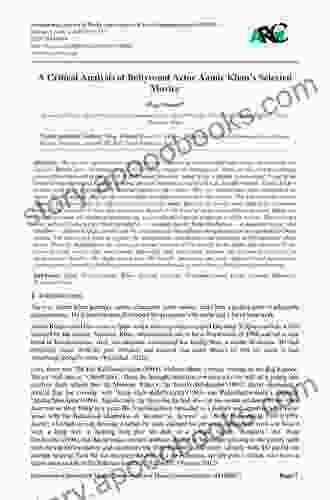
 Gerald ParkerCuban Cinema After the Cold War: A Journey of Resistance, Innovation, and...
Gerald ParkerCuban Cinema After the Cold War: A Journey of Resistance, Innovation, and... Eddie BellFollow ·14.6k
Eddie BellFollow ·14.6k Jeff FosterFollow ·16.8k
Jeff FosterFollow ·16.8k E.E. CummingsFollow ·6.5k
E.E. CummingsFollow ·6.5k Dan BellFollow ·13.6k
Dan BellFollow ·13.6k VoltaireFollow ·7.8k
VoltaireFollow ·7.8k Winston HayesFollow ·5.1k
Winston HayesFollow ·5.1k Houston PowellFollow ·16.1k
Houston PowellFollow ·16.1k Jessie CoxFollow ·18.7k
Jessie CoxFollow ·18.7k
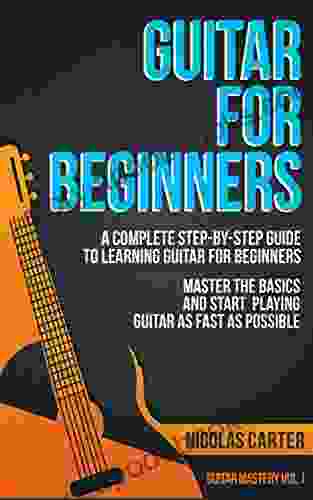
 Jorge Luis Borges
Jorge Luis BorgesUnlock Your Inner Musician: The Ultimate Guide to...
Embark on a Musical...
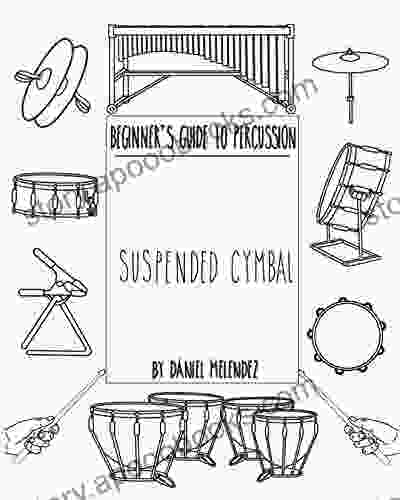
 Carlos Drummond
Carlos DrummondQuick Reference Guide To Percussion Instruments And How...
Unleash your inner rhythm with...

 Roberto Bolaño
Roberto BolañoUnlock Your Guitar Potential: The Ultimate Guitar Mastery...
Are you ready...

 Fred Foster
Fred FosterLooking for Lady Dee: A Punk Rock Mystery
By [Author's Name] Looking for Lady Dee is...
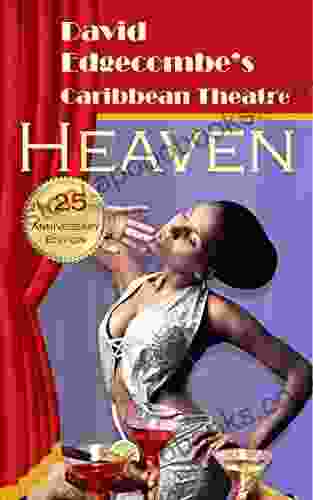
 Jacques Bell
Jacques BellJourney into the Mystical Realm of "Heaven Polly Alice...
In the tapestry of literature, where...
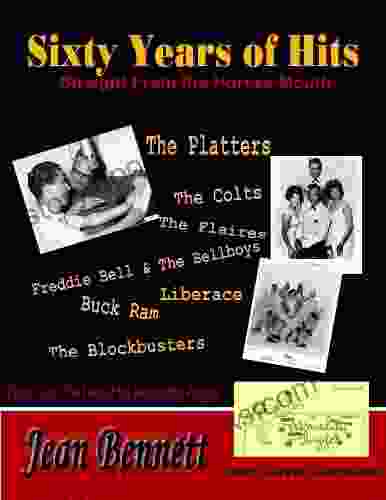
 Julio Ramón Ribeyro
Julio Ramón RibeyroSixty Years of Hits: A Musical Journey Through Time
Music has the...
5 out of 5
| Language | : | English |
| File size | : | 2212 KB |
| Text-to-Speech | : | Enabled |
| Screen Reader | : | Supported |
| Word Wise | : | Enabled |
| Print length | : | 210 pages |





